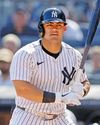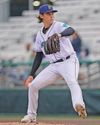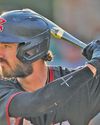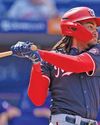
The goal of every team is to find impact players in the draft. Whether drafting from college or high school, pitchers or position players, organizations seek elite players who can impact games.
To do that, scouts hone in on players’ tools, grading them on a 20-80 scale to project their potential impact. To give a player even average (50) grades means he can be a solid, everyday major leaguer. Giving him plus (60) grades indicates the belief the player has all-star-level tools.
But only the cream of the crop receive 70 grades, and only the elite of the elite receive a coveted 80 grade. Players with that level of tools are the ones we talk about as perennial all-stars, MVPs and potential Hall of Famers.
Scouts are understandably wary of putting such high numbers on any amateur, simply because so few players ever reach that level of performance.
Still, 70 or 80 grades in the draft are occasionally realized in the major leagues. The question is: how often?
To find the answer, we examined every draft from 1965-2011 to find how many 70-grade (or better) hitters there were in each draft and how many 70-grade (or better) power hitters there were, as measured by major league performance.
We set a minimum of 3,000 career plate appearances to avoid small sample bias. The goal was to find 70-hit and 70-power grade performances over the course of a player’s career, not just individual seasons.
Players from the 2012-19 drafts are largely in the early stages of their careers or have yet to begin them, and thus were not included in our study.
Diese Geschichte stammt aus der May/June 2020-Ausgabe von Baseball America.
Starten Sie Ihre 7-tägige kostenlose Testversion von Magzter GOLD, um auf Tausende kuratierte Premium-Storys sowie über 8.000 Zeitschriften und Zeitungen zuzugreifen.
Bereits Abonnent ? Anmelden
Diese Geschichte stammt aus der May/June 2020-Ausgabe von Baseball America.
Starten Sie Ihre 7-tägige kostenlose Testversion von Magzter GOLD, um auf Tausende kuratierte Premium-Storys sowie über 8.000 Zeitschriften und Zeitungen zuzugreifen.
Bereits Abonnent? Anmelden

THE SERVICE TIME CONUNDRUM
MLB’s byzantine service time rules cloud rookie status and now PPI eligibility

LUIS TIANT WAS MLB'S MOST SUCCESSFUL CUBAN PITCHER
On a scouting trip to Cuba in 1957, Bobby Avila discovered 16-year-old righthander Luis Tiant on the island's Juvenile League all-star team.

ORGANIZATION REPORT
Outfielder Heston Kjerstad's career has been unique, to say the least.

TOP 10 NL EAST
From the moment Thomas White stepped on a high school mound, he was viewed as the top lefthander available in the 2023 draft.

PREPARATION PAYS OFF
lowa politician J.D. Scholten makes a surprising return to pro ball at age 44

MAKING THE GRADE
Assessing the future value of graduated National League prospects

TOP 10 NL WEST
Even in high school, Bryce Eldridge could hit the ball a mile. The 6-foot-7 righthander could also touch 96 mph off the mound.

Wood Has Towering Upside- Nationals rookie James Wood also stands 6-foot-7 and also has game-changing power.
Aaron Judge and Oneil Cruz are 6-foot7 sluggers who stand out for their power in this year’s MLB Best Tools voting. Wood spent half of this season with Triple-A Rochester before making his MLB debut on July 1. While he was in the International League, he captured managers’ attention. Wood unanimously won Best Power Prospect and also claimed Most Exciting Player in a survey of league skippers. Wood hit .353/.463/.595 with 10 home runs in 52 games for Rochester. His .242 isolated slugging was the best for a player 21 or younger at Triple-A this season.

ROAD BLOCK?
Scholarship expansion puts mid-majors at a major disadvantage on the road to Omaha

ROYALS REVIVAL
A revamped and rejuvenated farm system has Kansas City ready to rebound